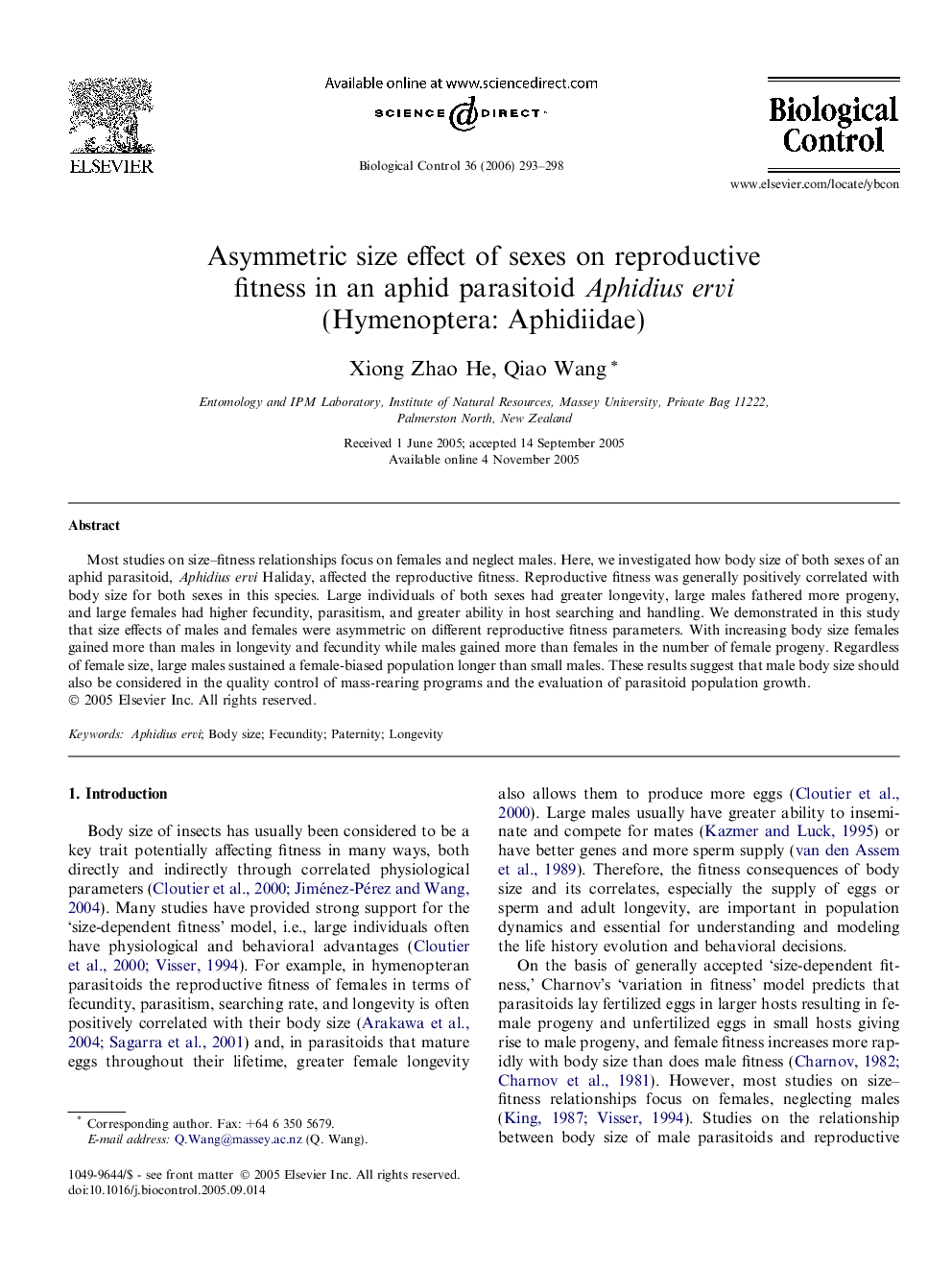| Article ID | Journal | Published Year | Pages | File Type |
|---|---|---|---|---|
| 4505470 | Biological Control | 2006 | 6 Pages |
Most studies on size–fitness relationships focus on females and neglect males. Here, we investigated how body size of both sexes of an aphid parasitoid, Aphidius ervi Haliday, affected the reproductive fitness. Reproductive fitness was generally positively correlated with body size for both sexes in this species. Large individuals of both sexes had greater longevity, large males fathered more progeny, and large females had higher fecundity, parasitism, and greater ability in host searching and handling. We demonstrated in this study that size effects of males and females were asymmetric on different reproductive fitness parameters. With increasing body size females gained more than males in longevity and fecundity while males gained more than females in the number of female progeny. Regardless of female size, large males sustained a female-biased population longer than small males. These results suggest that male body size should also be considered in the quality control of mass-rearing programs and the evaluation of parasitoid population growth.
